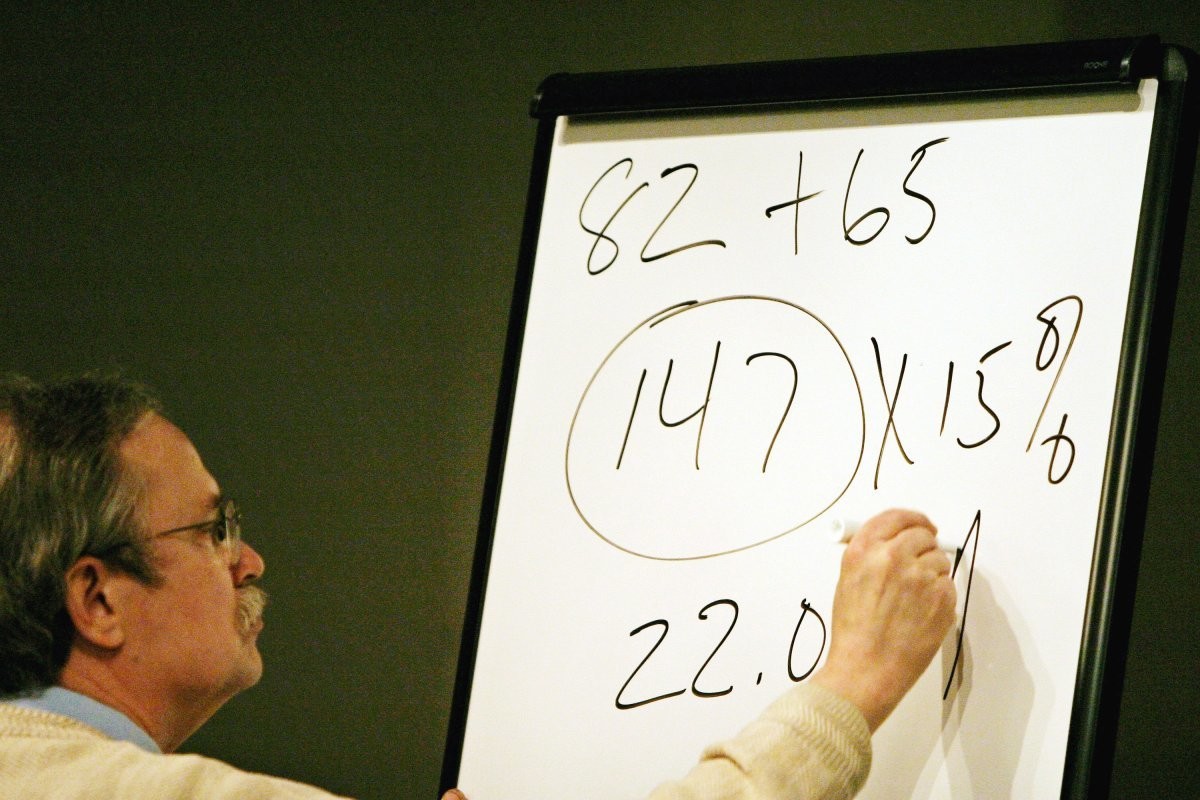Speak computer? These programming languages are in high demand

Here are the programming languages you should learn if you always want to have a job. Image: REUTERS/Stringer

Get involved with our crowdsourced digital platform to deliver impact at scale
Stay up to date:
Future of Work
"Software is eating the world," venture capitalist Marc Andreessen famously declared.
Someone has to write that software. Why not you?
There are thousands of programming languages, but some are far more popular than others.
When a company goes out to find new programming talent, they're looking for people familiar with the languages and systems they already use — even as relatively newer languages like Apple Swift or Google Go start to make a splash.
Here are the programming languages you should learn if you always want to have a job, as suggested by the popular TIOBE Index, the Redmonk Programming Language Rankings, and the annual Stack Overflow developer survey.
Java: Originally invented in 1991 as a programming language for smart televisions, Oracle's Java is still the most popular language in the world — a position solidified by the fact that Java is crucial to Android app development and lots of business software.

C: One of the oldest programming languages still in common use, C was created in the early 1970s. In 1978, the language's legendary and still widely read manual, the 800-page "The C Programming Language," saw print for the first time.

Python: This language traces back to 1989, and is loved by its fans for its highly readable code. Many programmers suggest it's the easiest language to get started with.

PHP: This language for programming web sites is incredibly common — some estimates say it powers one-third of the web. Big sites like WordPress, Facebook, and Yahoo use it. A lot of programmers also hate PHP with a passion — Stack Overflow founder Jeff Atwood once wrote, "PHP isn't so much a language as a random collection of arbitrary stuff, a virtual explosion at the keyword and function factory."

Visual Basic: Microsoft's Visual Basic (and its successor, Visual Basic .NET) tries to make programming easier with a graphical element that lets you change portions of a program by dragging and dropping. It's older, but it's still got its users out there.

JavaScript: This is a super-popular programming language primarily used in web apps. But it doesn't have much to do with Java besides the name. JavaScript runs a lot of the modern web, but it also catches a lot of flak for slowing browsers down and sometimes exposing users to security vulnerabilities.

R: This is the programming language of choice for statisticians and anybody doing data analysis. Google has gone on record as a big fan of R, for the power it gives to its mathematicians.

Go: Originally designed by Google to build systems at the immense scale needed to power the world's busiest search engine, it's since caught on with developers who value reliability and integrity above all else. It's one of the fastest-growing programming languages out there, too.

Ruby: Like Python, developers like this 24-year-old language because it's easy to read and write the code. Also popular is Rails, an add-on framework for Ruby that makes it really easy to use it to build web apps. The language's official motto is "A programmer's best friend."

Groovy: This offshoot of Java has surged in popularity since its 2007 inception, designed to make it easier and faster to write lots of code. And since Groovy integrates just fine with Java code, it's won over developers at big companies like IBM, Google, and Target.

Objective-C: The original C programming language was so influential that it inspired a lot of similarly named successors, all of which took their inspiration from the original but added features from other languages. It's still more popular than Apple's homegrown Swift language, but Swift is gaining fast.

Perl: Originally developed by a NASA engineer in the late '80s, Perl excels at processing text, and developers like it because it's powerful and flexible. It was once famously described as "the duct tape of the web," because it's really great at holding websites together, but it's not the most elegant language.

Pascal: Named for famed philosopher Blaise Pascal, this language was instrumental in the coding of the original Apple Macintosh computers. Eventually, Pascal extended into so-called Object Pascal, where it's still widely used in systems today

Delphi Object Pascal: Originally developed at Apple in 1986 and named because it helped programmers connect to Oracle databases (as in, "The Oracle at Delphi"), Delphi is seeing its star rise once again as an alternative for building smartphone apps.

Swift: While Apple's previous issues with Taylor Swift may have made all the headlines, the Apple Swift programming language was winning over developers as a faster, easier way to build iPhone apps. With high-profile fans like IBM, expect it to take off even more in 2016.

MATLAB: Intended as a mathematical programming language to help teach university students advanced algebra and image processing, it's also widely used by scientists, engineers, and programmers working in the exploding field of image processing and other artificial-intelligence applications.

Don't miss any update on this topic
Create a free account and access your personalized content collection with our latest publications and analyses.
License and Republishing
World Economic Forum articles may be republished in accordance with the Creative Commons Attribution-NonCommercial-NoDerivatives 4.0 International Public License, and in accordance with our Terms of Use.
The views expressed in this article are those of the author alone and not the World Economic Forum.
The Agenda Weekly
A weekly update of the most important issues driving the global agenda
You can unsubscribe at any time using the link in our emails. For more details, review our privacy policy.
More on Future of WorkSee all
Andrea Willige
February 29, 2024
Kara Baskin
February 22, 2024
Stephen Hall and Rebecca Geldard
February 19, 2024
Jason Walker and Deborah Circo
February 12, 2024






